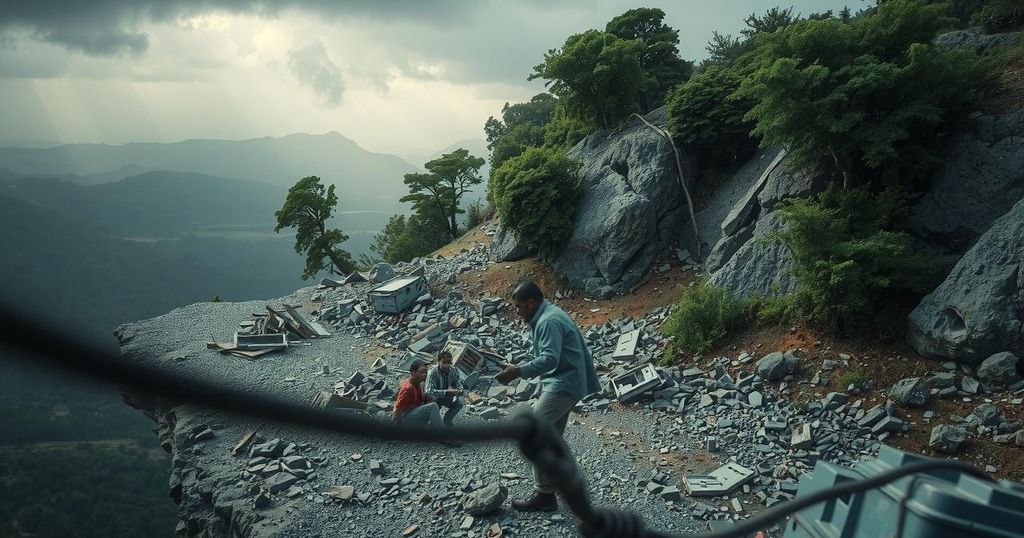The Urgency of Addressing the DRC Crisis: A Call to Action

The article discusses the disregard for international law in the conflicts affecting the DRC and highlights the role of international aid in influencing Rwanda’s actions. It notes the M23 rebel group’s control over major cities and the resulting humanitarian crisis. Increased funding to Rwanda amidst ongoing conflict raises ethical concerns, while Uganda’s military threats point to potential escalation. The shifting geopolitical landscape showcases a decline in Western influence compared to rising powers, complicating prospects for resolution.
International law is increasingly disregarded, highlighted by ineffective sanctions against Russia and a lack of decisive action regarding Gaza’s destruction. The conflicts in Sudan and Myanmar are further complicated by outside interference that undermines peace efforts. The Democratic Republic of Congo (DRC) exemplifies this crisis, where Rwanda and its M23 rebel faction seized control of key cities like Bukavu and Goma, displacing over 700,000 people since January. This situation has exacerbated existing refugee crises, with millions already displaced in the region.
Unlike passive bystanders in past conflicts, Western nations have leverage over Rwanda due to its dependency on external aid, which amounts to around $1.3 billion annually. When M23 threatened Goma in 2012, international donors quickly suspended aid, leading to Rwanda’s withdrawal of support for the rebels. However, this time, donor assistance has actually increased, with the EU announcing significant investments in Rwanda amid the ongoing crisis.
Ugandan threats further complicate the situation, with military leader Muhoozi Kainerugaba issuing ultimatums to local forces, indicating a potential escalation of conflict. This echoes past Congo wars that spiraled into regional conflicts involving multiple nations and resulted in millions of deaths. Diplomatic efforts following the fall of Goma have yielded little, as lukewarm condemnations dominate the international response amid a stagnant political atmosphere.
Despite a history of positive perceptions toward Western nations among Congolese citizens, these views have plummeted due to corruption, the M23 rebellion, and the impact of the pandemic. Surprisingly, Russia has gained popularity, highlighting a shift in geopolitical alliances as countries like China and Turkey expand their influence.
The phrase attributed to Antonio Gramsci captures the current sentiment: “The old world is dying, the new world is slow in appearing, and in this chiaroscuro monsters arise.” However, the question remains: will France and other nations leverage their influence to prevent further deterioration in the DRC?
The situation in the DRC is critical, with the M23 rebellion threatening regional stability. Increased international aid to Rwanda, in light of its military actions, raises concerns about accountability and moral responsibility from Western donors. The geopolitical landscape is shifting, with new players like Russia and China gaining influence, leaving the DRC and its people facing an uncertain future. A cohesive response from the international community is necessary to avert a deeper crisis.
Original Source: www.lemonde.fr







